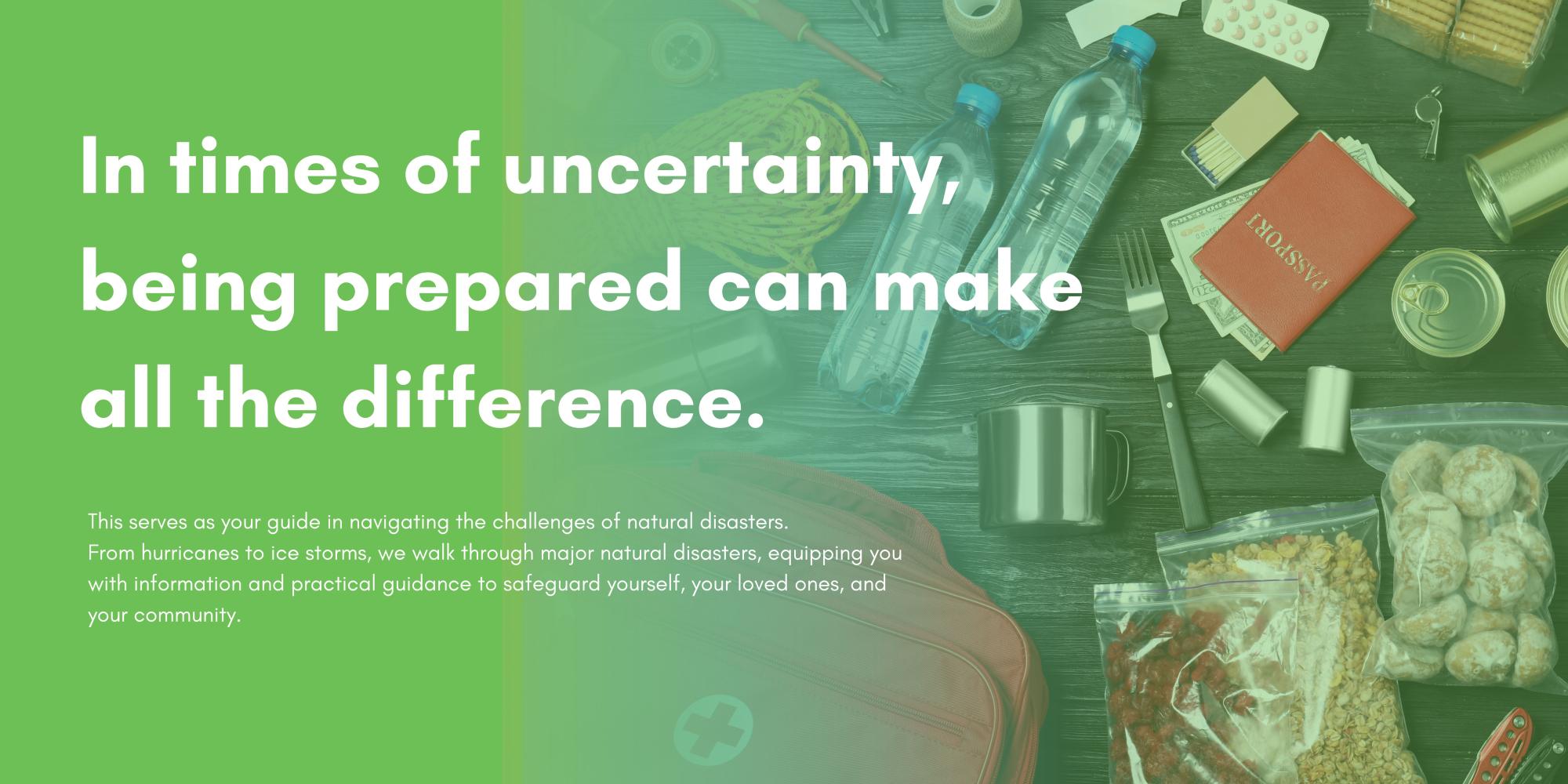

Floods: It is important to be well-prepared for floods. Stay informed about your local flood risk and follow the guidance of emergency authorities. Remember, preparedness is key. If you wait until flooding is imminent, it’s already too late.

Hurricanes: Anyone who’s lived in North Carolina for a while is familiar with the dangers of hurricanes. Hurricanes can bring extremely high winds, and heavy rainfall which can result in flooding, downed trees, lightning, and power outages. Thankfully hurricanes take a long time to form, so meteorologists can make good predictions on the location and intensity of their impact.
 Thunderstorms: Thunderstorms are common and can be dangerous. They bring intense wind, flash flooding, hail, and lightning. An ounce of prevention is worth a pound of treatment, so use this short guide to help you weather the storm.
Thunderstorms: Thunderstorms are common and can be dangerous. They bring intense wind, flash flooding, hail, and lightning. An ounce of prevention is worth a pound of treatment, so use this short guide to help you weather the storm.
 Droughts & Heat Waves: We all know it gets hot at times in North Carolina, but heat waves bring extreme temperatures that can be dangerous. And heat exhaustion has a way of “sneaking up” on you when you don’t expect it. Make sure to take proper precautions during a heat wave or drought.
Droughts & Heat Waves: We all know it gets hot at times in North Carolina, but heat waves bring extreme temperatures that can be dangerous. And heat exhaustion has a way of “sneaking up” on you when you don’t expect it. Make sure to take proper precautions during a heat wave or drought.
 Ice Storms, Freezing Rain & Winter Storms: We are fortunate in North Carolina to not get too many ice storms, but we can usually expect 1 or 2 each year. Because they don’t happen too often, people are often not well prepared. Follow the tips in this guide to keep safe and warm during ice storms and freezing rain predictions on the location and intensity of their impact.
Ice Storms, Freezing Rain & Winter Storms: We are fortunate in North Carolina to not get too many ice storms, but we can usually expect 1 or 2 each year. Because they don’t happen too often, people are often not well prepared. Follow the tips in this guide to keep safe and warm during ice storms and freezing rain predictions on the location and intensity of their impact.
Ice Storms, Freezing Rain & Winter Storms PDF
Click here to visit our full Disaster Recovery Resource website.
